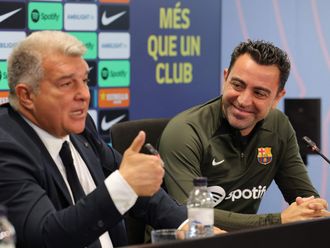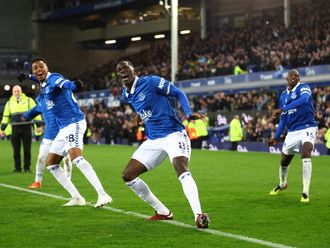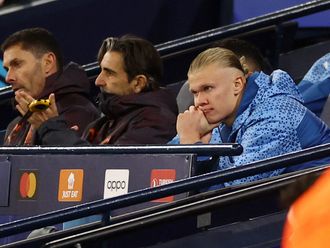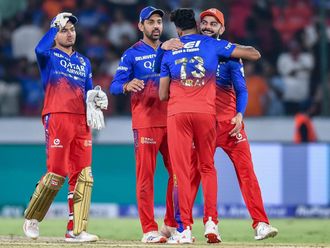_resources1_16a30b35339_medium.jpg)
Barcelona: In the past eight days, an era has ended, a dynasty has been dismantled, an aristocracy has crumbled and a balance of power that held for a decade has shifted. Change has swept through the Champions League. European football’s landscape has been transformed. Not that it was easy to tell from Barcelona last night. Here, where the hosts thrashed Lyon, 5-1, on Wednesday, it all felt the same as ever.
This has been a tumultuous week. The peak came right away: Real Madrid — the team that had held this competition in their thrall, seemingly incapable of not winning it, their opponents apparently dazzled by the mythology of those bright white jerseys — humbled, at home, by a young and vibrant and entirely dismissed Ajax.
The next night, Paris St-Germain fell, the prize its owners covet more than any other once again proving elusive.
There might, ordinarily, have been some solace in being eliminated by one of Europe’s true giants, Manchester United, but that would only have applied if it had been United’s first team. It was not. It was a patchwork, scratch sort of a side, cobbled together with what little material that manager Ole Gunnar Solskjaer had at hand, and it was still enough.
On Tuesday night, that other great cornerstone of European football — Atletico Madrid’s defence, so miserly and obdurate — came unstuck. It was generally held to be inconceivable that a team as disciplined and well organised and gnarled as Diego Simeone’s could contrive to throw away a two-goal first-leg lead, but contrive to they did.
Wednesday brought one more: Bayern Munich beaten comfortably on home territory by Liverpool. For the first time in 13 years, there will be no German teams present on Friday when the draw for the quarter-finals is made. There will be four representatives from the Premier League, for the first time in 10.
No wonder, then, there is a sense that the guard is changing, that this will prove to be the season that bridges two distinct ages. The time of this incarnation of Real Madrid has passed, most obviously, but perhaps that can be said of others among the clutch of superclubs who have, for the past decade, dominated the latter stages of this competition, too.
Bayern are gearing up to rejuvenate their squad. Atletico will lose the player that has best encapsulated its recent history — grizzled Uruguayan defender Diego Godin — this summer.
As they stumble, the English rise: Manchester City’s destruction of Schalke cemented their place as the favourite to inherit Real Madrid’s crown; Liverpool reached the final last year, and are a more rounded side this time around. Tottenham beat Borussia Dortmund with a maturity they have previously lacked. United have a sense of abandon and fun that makes them dangerous.
If the dominance of Real Madrid taught us anything, it was that this is a competition defined by individuals more than by systems. And those individuals have not changed at all.
On Tuesday, it was Cristiano Ronaldo, scoring yet another hat-trick to pull Juventus clear of Atletico, to deliver on the reputation that convinced the Italian champions to pay Real somewhere north of $100 million on a 33-year-old forward last summer.
And on Wednesday — obviously — it was Lionel Messi, scoring twice, creating twice, and orchestrating Barcelona’s demolition of a courageous, fearless but utterly outgunned Lyon.
His strikes, before his two assists helped a victory bleed into a rout.
But that is not what stood out. What makes Messi so captivating is that it is not just the killer blows that count, but all of the jabs and the thrusts and the parries. It is the precision of his passing, his unerring ability to make the right choice. Messi rarely tries the spectacular. He does not abuse his status. His gift has always been his simplicity; that is not fading, not at all, not yet.











